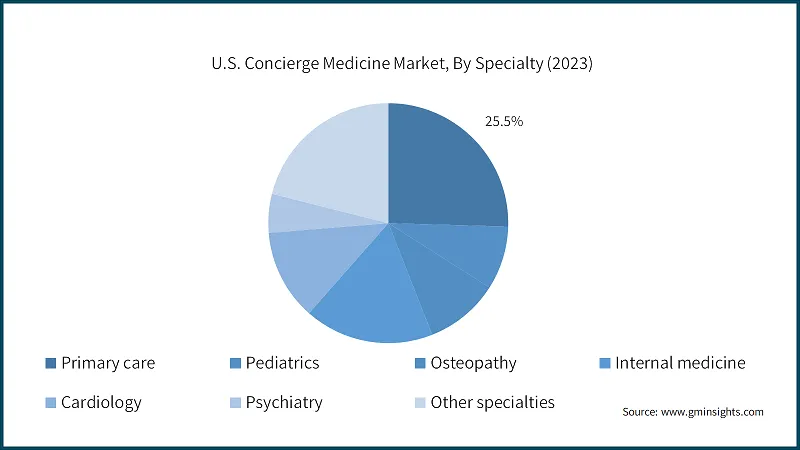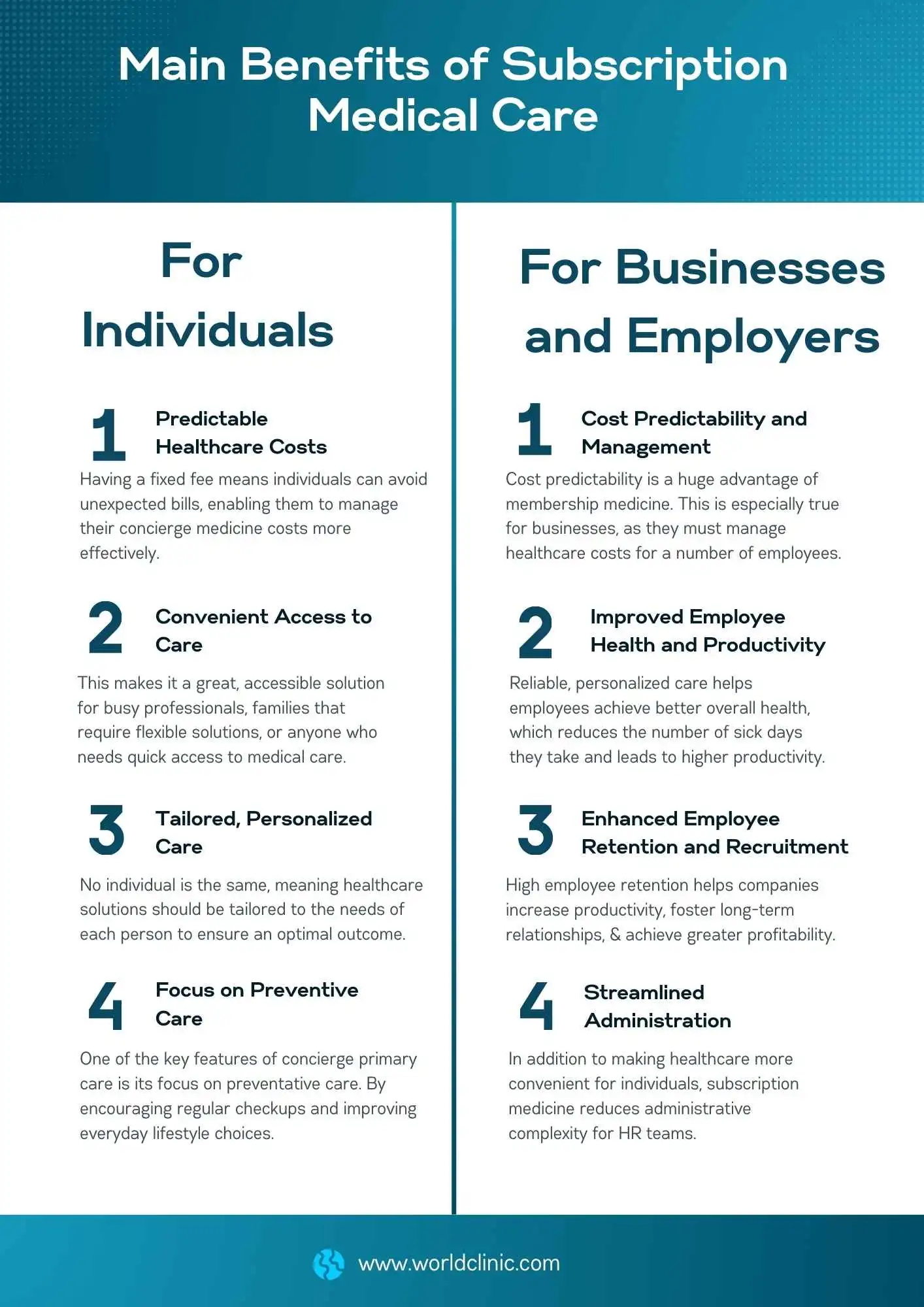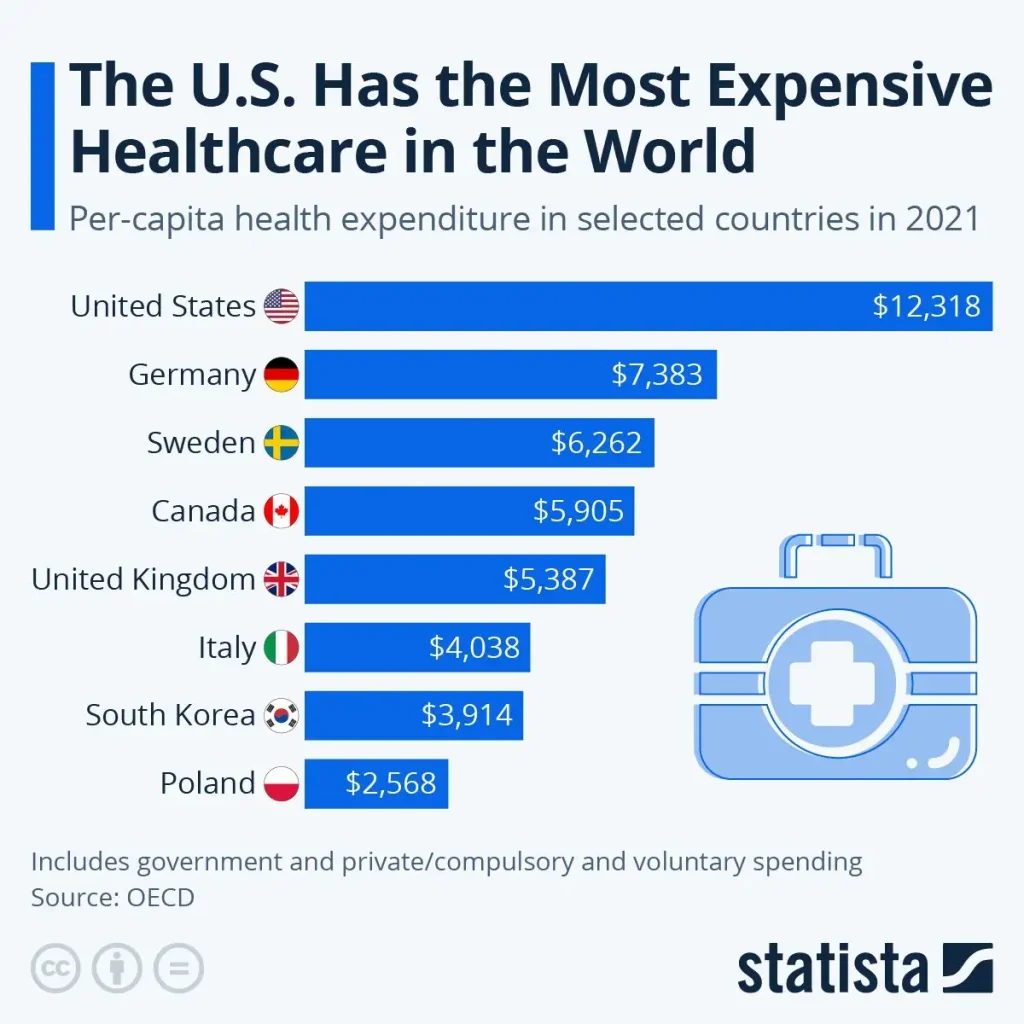Over time, healthcare has evolved to meet changing customer expectations and adapt to new technological advancements. With these changes, subscription medical care has proven to be a valuable solution in overcoming the complexities of traditional insurance models.
This approach is quickly growing in popularity, with the U.S. Concierge Medicine Market size expected to reach USD 15.1 billion by 2032. Why?
Because subscription-based medical care is affordable, convenient, and focuses on proactive, personalized care—a solution that appeals to both individuals and employers.
To better understand this healthcare model, let’s explore the benefits of subscription medical care, the potential challenges of this approach, and how WorldClinic provides customizable plans to support better care no matter where you are.

What is Subscription Medical Care?
Subscription medical care, or concierge medicine, is a healthcare model where patients or organizations pay a recurring fee for access to medical services. This model provides a range of benefits, such as predictable pricing, streamlined access, and patient-focused care that helps individuals take an active role in their health.
Unlike fee-for-service systems, membership-based healthcare eliminates surprise costs and prioritizes proactive, personalized healthcare. This approach also provides individuals with greater flexibility in managing their healthcare, enhancing their overall satisfaction with services.
Main Benefits of Subscription Medical Care
So why is subscription medical care growing in popularity?
With an increasing number of people turning to subscription-based healthcare, it’s clear that there’s much to gain from this approach. Keep reading to learn how this solution can benefit both individuals and businesses.

For Individuals
1. Predictable Healthcare Costs
One of the top advantages of subscription-based healthcare is that individuals pay a monthly or annual fixed fee. Why is this important?
Having a fixed fee means individuals can avoid unexpected bills, enabling them to manage their concierge medicine costs more effectively. It also encourages them to fully utilize their healthcare services, unlike fee-for-service models, where individuals may hesitate to call their doctor when they’re sick due to cost concerns.
2. Convenient Access to Care
In today’s fast-paced world, convenience is key. That said, one of the benefits of concierge medicine is its accessibility. With features like 24/7 telemedicine, same-day or next-day appointments, and shorter wait times, concierge family medicine offers a new level of convenience that’s not typically found in traditional healthcare. This makes it a great, accessible solution for busy professionals, families that require flexible solutions, or anyone who needs quick access to medical care.
3. Tailored, Personalized Care
No individual is the same, meaning healthcare solutions should be tailored to the unique needs of each person to ensure an optimal outcome. Depending on the patient, this may include solutions for chronic disease management, preventative care, or even lifestyle changes. What’s important is that each person feels comfortable with their healthcare plan, therefore improving their satisfaction with the service.
4. Focus on Preventive Care
One of the key features of concierge primary care is its focus on preventative care. By encouraging regular checkups and improving everyday lifestyle choices, this healthcare model increases early detection of health issues, helping individuals avoid serious health issues in the future and enjoy a better-quality life.
For Businesses and Employers
1. Cost Predictability and Management
As mentioned, cost predictability is a huge advantage of membership medicine. This is especially true for businesses, as they must manage healthcare costs for a number of employees. That said, having fixed healthcare costs helps companies plan budgets more effectively, reducing the risk of unexpected claims or rising premiums and helping them use their resources more strategically.
2. Improved Employee Health and Productivity
Reliable, personalized care helps employees achieve better overall health, which reduces the number of sick days they take and leads to higher productivity. Research supports this claim, stating that employees who are in good physical, mental, and emotional health are more likely to deliver optimal performance in the workplace than employees who are not.
In addition to providing tailored services, concierge doctors‘ focus on preventative care helps individuals avoid long-term absences caused by preventable illnesses or injuries—a win-win for both companies and their employees.
3. Enhanced Employee Retention and Recruitment
High employee retention helps companies increase productivity, foster long-term working relationships, and achieve greater profitability. While there are numerous factors that contribute to high retention rates, employee health benefits—such as subscription-based medical care—demonstrate a company’s commitment to their employee’s well-being, therefore attracting top talent and reducing turnover.
4. Streamlined Administration
In addition to making healthcare more convenient for individuals, subscription medicine reduces administrative complexity for HR teams. This is because concierge healthcare solutions are easier to manage, with fewer claims to process and streamlined workflows simplifying budget planning. As a result, your HR team can save time and focus on more urgent responsibilities.
Common Challenges with Subscription Medical Care
While the benefits of concierge doctor services are clear, there are potential challenges associated with healthcare subscriptions. However, being aware of the potential cons of direct primary care empowers individuals and employers to address and mitigate these concerns. Here’s how:
For Individuals
1. Potential Limited Coverage Scope
It’s important to note that subscription medical care typically focuses on primary and preventative services. So while it’s a great solution for handling everyday sicknesses, managing health conditions, and catching potential illnesses early, these services might not include emergency treatments, hospital stays, or specialized procedures. For that reason, we recommend choosing a provider that provides reliable doctor referrals and integrates well with existing insurance plans.
2. Upfront Costs
While subscription models reduce unexpected medical expenses, individuals who do not require medical attention often may view monthly or annual fees as an unnecessary expense. Although one of the benefits of these services is their financial predictability, individuals concerned with upfront costs can minimize these concerns by working with a company that provides tailored plans. This ensures that their subscription aligns with their specific healthcare needs.
3. Lack of Familiarity
While change is an important part of life, individuals may be hesitant to adopt unfamiliar approaches—this is especially true in healthcare. Since subscription medical care is a new concept to many, individuals should partner with an experienced company that will walk them through every detail, making the transition easier and stress-free. For this reason, we recommend choosing a concierge healthcare provider that offers a detailed onboarding process, ensures clear communication, and delivers ongoing support.
For Businesses and Employers
1. Overlap with Existing Health Insurance Plans
One of the concerns a company may have is the potential overlap between subscription-based medical careand traditional health insurance. Before choosing a provider, employers must understand how concierge medicine works with insurance. While insurance typically does not cover membership fees, it may cover medical services like diagnostics, medications, and treatments provided in concierge medicine. To ensure a successful outcome, make sure the services provided complement existing plans.
2. Employee Engagement and Adoption
Employees may not immediately see the value in subscription-based medical care, as they’re unfamiliar with this model of healthcare. To address low initial adoption rates, employers should provide clear explanations of the model’s benefits, explaining how it works in order to reduce confusion. This will result in greater participation, help workers feel more valued in their company, and lead to better employee health.
3. Regulatory and Legal Compliance
Implementing subscription medical care across multiple regions may involve navigating varying healthcare regulations. And since staying compliant is a top concern for employers, it’s critical to work with a subscription medicine provider that has experience managing compliance across different jurisdictions. This reduces the administrative burden and ensures a smooth implementation.

Enhancing Subscription Medical Care
From 24/7 support to seamless integration with existing benefits, there are multiple ways that subscription medical care provides added value to both individuals and organizations.
Global Access and 24/7 Support
With telemedicine, individuals and employees can connect with medical professionals at any time, from anywhere in the world. Whether you’re on a business trip, traveling with your family, or too sick to get out of bed, you can call your provider for rapid diagnosis and treatment.
At WorldClinic, we’re committed to connecting you with a physician in 60 seconds or less, ensuring immediate attention for any illness, injury, or health concern.
Customizable Plans to Meet Diverse Needs
To meet the unique needs of individuals and businesses, we recommend working with a company that provides tailored healthcare plans. Whether you want help managing a chronic condition, are working towards improving everyday lifestyle choices, or have specific health concerns, personalized care ensures that your subscription medical care supports long-term health.
At WorldClinic, we’ll evaluate your unique needs and provide you with a personalized Prescription Medical Kit. These kits are stocked with prescription and over-the-counter medications tailored to your needs, facilitating immediate treatment for common health issues.
Proactive and Preventive Health Management
Due to the numerous benefits of preventative health, proactive and preventative care is a key focus in subscription medical care. By prioritizing regular health monitoring, chronic disease management, and preventive strategies, concierge doctor services help individuals reduce the risk of severe health issues. This, in turn, helps foster better long-term health outcomes.
Seamless Integration with Existing Benefits
Membership-based healthcare complements traditional healthcare plans by providing comprehensive support, reducing administrative burdens for organizations, and improving the overall experience for individuals. At WorldClinic, we’ll ensure your personalized membership plan integrates effortlessly with current medical support networks, guaranteeing you receive prompt, effective treatment.
Conclusion
Subscription medical care offers convenience, cost predictability, and tailored solutions for unique healthcare needs.
At WorldClinic, we create personalized strategies to help you address your specific health requirements, offering membership plans to individuals and employers to ensure successful, long-term health solutions.
So, ask yourself: How can subscription-based medical care transform your healthcare experience and/or improve the wellness outcomes of your employees?
To learn more about our services, contact us today.
FAQs about Subscription Medical Care
1. How does subscription medical care differ from traditional healthcare?
Subscription medical care is a healthcare model where patients or organizations pay a recurring fee for access to medical services. Traditional healthcare, on the other hand, typically operates on a fee-for-service basis, where patients pay for each visit, procedure, or treatment.
2. What services are typically included in a subscription medical care plan?
Subscription-based healthcare typically includes wellness exams, same-day or next-day appointments, preventive care, chronic disease management, and 24/7 access to support from anywhere.
3. Is telemedicine included in subscription medical care plans?
Yes, telemedicine solutions are often included in subscription medical care plans. This enhances healthcare accessibility, improves care coordination, and increases overall convenience.
4. How does subscription medical care address emergency or specialized care needs?
While subscription medical care typically focuses on proactive and preventative care, many providers provide emergency care coordination, referrals to specialists, and follow-up support to ensure individuals receive well-rounded care.
5. Can subscription medical care plans work alongside existing health insurance?
Yes, membership care plans can complement existing health insurance plans. Working with an experienced subscription medical care provider ensures seamless integration.


